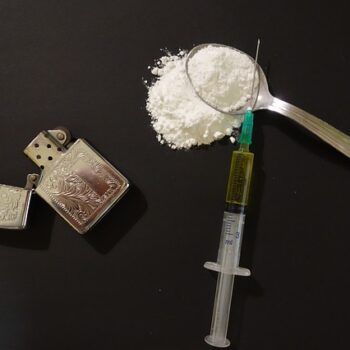Introduction
I ended up in the ER more than a few times before I realized that having the right information at hand could have made things easier.
Plan ahead of time.
- Have a first aid kit ready. Make sure everyone in your family knows where it is and how to use it, and make sure you have enough supplies on hand.
- Know where you will go if an emergency occurs. Do you know the evacuation paths for your area? How long would it take you to get to the nearest hospital? Where would your pets be taken if they were injured or sick? If there is bad weather, do any of these routes become impassable or dangerous? What about flooding—is there a chance that roads could flood out and make getting outside impossible? These are all things that need to be considered when planning ahead of time so that no one gets stranded without food or shelter during an emergency situation.
- Know how far away from home (or other locations) are hospitals with trauma centers open 24 hours per day during a disaster situation. This way, if someone needs urgent care after an accident has occurred off-site, then at least there’s some idea about how long it’ll take them before arriving at their destination hospital instead of just guessing blindly based on experience alone.* Have backup plans for everything! Whether it’s having extra fuel stored away just in case power goes out unexpectedly; having extra food stocked up just in case grocery stores don’t reopen quickly enough; having multiple forms of transportation available such as bicycles/scooters/walkers etc… so people won’t need to rely solely upon cars which may not always work as intended when running low on gas due to lack supply shortages due to resource scarcity issues caused by climate change effects like hurricanes/flooding etc…
Know how to get help.
To be prepared for emergencies, you need to know how to get help. You should be familiar with the following:
- The name and phone number of your local emergency medical services (EMS) agency. If there is an emergency, it will be important for them to know where you are located.
- The phone number for EMS in your area and any other area where you might find yourself during an emergency event. It’s also a good idea to keep on hand the fax number or email address if possible so they can reach out to you if necessary after hours or when conventional communication methods fail due to widespread power outages or network problems that prevent cell phones from being used as expected.
- Your family doctor’s name and contact information (phone number, address). This person can assist in identifying non-emergency injuries that require immediate attention and prioritize which patients require transportation by ambulance services first so that resources aren’t wasted on minor medical situations while more serious ones go untouched because no one knows who needs care right away!
Know your health conditions and medications.
When you are preparing for a disaster, it is important to know your health conditions and medications. This will help prepare the people around you for any medical emergencies.
If you have allergies or take any medications, make sure that your family members and friends know what they are in case of an emergency. You should also make sure that your doctor knows about any medications or allergies so that he or she can prescribe appropriate treatments in case of an emergency.
If you travel often, consider taking copies of all prescriptions with you, or even better yet bring the actual medication itself if possible. If traveling by plane, check with the TSA before making large amounts of liquids as some planes do not allow airplane-sized bottles through security due to security reasons (although this may change in the future).
Start with the basics.
There are a few basic supplies you should have in your first aid kit:
- Bandages – for cuts and scrapes
- Adhesive tape – for wrapping wounds and splinting limbs and joints
- Gauze pads – to stop bleeding, clean wounds, and cover burns
- Antibiotic ointment – to prevent infection in open wounds or burns (should not be used on deep puncture wounds or animal bites)
- Scissors or tweezers – to remove splinters, ticks, or other foreign objects
Leave your details below if you would like buy first aid products
[forminator_form id=”3084″]
You also should learn some basic first aid skills so that you know how to handle an emergency situation. Here are some examples:
Talk about what could happen.
Sit down with those you love and talk about the kinds of emergencies you could face. Make sure they know when to call 911, how to respond to minor accidents, and what to do for common medical emergencies.
When it comes to physical injuries and illnesses, remember that there are a lot of things you can do on your own before calling 911: If someone is having chest pains or difficulty breathing, try giving them aspirin or nitroglycerin—both very effective at relieving symptoms like these. If they’re bleeding badly from an open wound, apply pressure with something clean (like gauze).
If someone has fallen and hit their head, check their responsiveness—if they’re unconscious but still breathing normally (and not seizing), use first aid techniques like applying ice packs or elevating their legs if possible until help arrives.
Prepare for any emergency, like a car accident or a tornado, with first aid training.
In case of an emergency, it’s important to be prepared.
The Red Cross recommends everyone know the following:
- How to do CPR
- How to use a fire extinguisher
- How to turn off gas and electricity in your house (if there’s a fire)
Conclusion
It’s important to remember that being ready for an emergency is not a one-and-done proposition. Think about your family as you continue to prepare for the future: how often do you check and update their contact information? How many times have you needed to replace or upgrade your first aid kit? How long has it been since you made sure all the smoke detectors were working? You don’t want to find out the hard way that something has expired, or that there is some other problem. So make an effort to think about these things now!
Katubu is a fountain for self-improvement. After reading an article from Katubu a visitor must feel that it has opened their mind eventually becoming a better person. Articles range from Life, Business, Education, Health and more










People reacted to this story.
Show comments Hide commentsAwesome website man, looks very nice. Been searching for a site like this.